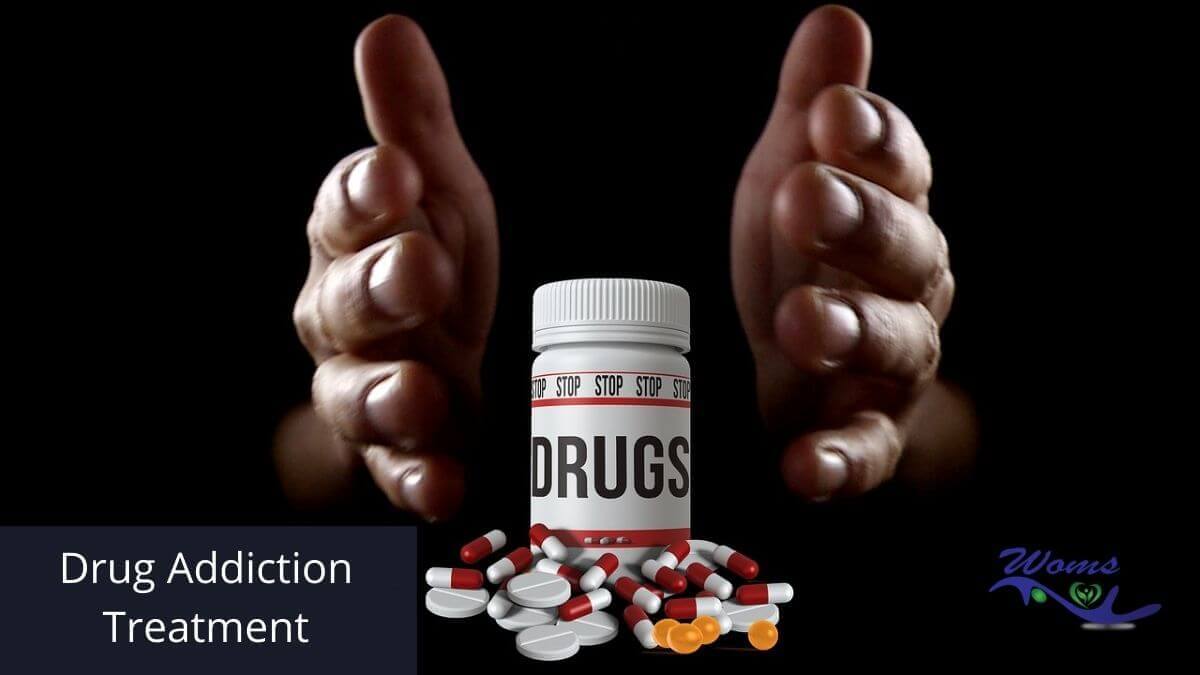5 best ways of Drug Addiction treatment

Drug Addiction
When a person you love is undergoing drug addiction, it can be hard to distinguish if what you’re doing is supporting them to overcome the condition or just creating more opportunities to continue the substance use. Families that encounter addiction often feels out of control and need help from a professional. It’s crucial that you recognize signs of drug abuse so you can help a loved one get treatment before addiction becomes too serious.
And giving that “push” can be done in a lot of different ways. You can, for example, look for drug rehab centers that can professionally help with the comprehensive treatment of the person; you can organize an intervention or a structured conversation between the individual and their other loved ones, or you can even simply help the person in ways that you know are positive and constructive. But even those with good intentions, you may end up doing quite the opposite if you’re not really well-versed in the psychiatry and psychology of addiction. You could end up doing what is known as enabling, and it can halt or even reverse the progress of someone who is undergoing treatment.
What’s the difference between supporting and enabling? Simply put, supporting is helping an individual dealing with substance abuse disorder to do things they’re incapable of doing for themselves. It can also mean motivating them to gain positive control over their behaviors and their life in general.
Enabling, on the other hand, is shielding the person from the negative implications of their actions or preventing them from becoming independent. When they don’t face repercussions, they believe their addiction is acceptable and they don’t learn to be accountable for their decision not to get treatment.
how supporting can easily turn into enabling:
- Covering for the person when they miss work or class because of drug use.
- Paying for the addicted person’s rent when you’re aware they spent all their money on drugs and paraphernalia.
Nevertheless, even after knowing the definition of supporting and enabling and being aware of their implications, it can still be tricky for you to tell if you’re just being helpful to the person, or if you’re already causing certain behaviors to worsen. To help guide you in the right direction, we’re providing you with more concrete examples of the differences between supporting and enabling. You can use this to guide your behavior when you’re interacting with a friend or a loved one who needs addiction treatment. You can also know more about In-patient drug rehab.
1. Supporting Means Understanding But Not Tolerating
It can be very hard to tell a person you care about that they are putting themselves and others in danger because of their addiction, but it has to be done. All too often, loved ones decide not to speak up for fear of creating resentment or pushing away the person who is dealing with substance use disorder.
What this ends up doing, however, is preventing the consequences from becoming a motivation to change and letting the addiction to continue. The person should never be made to believe that someone will always be around to bail them out if they get into trouble or to defend them after doing something wrong.
2. Supporting Means Settings Boundaries
It’s helpful to remember that you may not have full control over a loved one with addiction, but you do have control over your own reactions and behaviors.
Boundaries are rules and guidelines to protect your own well-being, but they also exist to remind the other individual that you have your own life to live. Let the person know that there are certain things you cannot allow or continue to allow, such as abusive behavior, but do so in a polite yet firm way.
Once a boundary is established, it must be maintained or it will be meaningless. This can be a powerful way of reminding the person that they must take action to help themselves without depending completely on you or other people.
3. Enabling Means Doing Things They Can Do for Themselves
If a person with drug addiction has lost their driver’s license due to their addiction problem, it’s a form of support when you offer to drive them to their treatment center or to a job interview because these are things they are unable to do on their own.
However, it does not mean you have to go the whole nine yards and search job opportunities for them without them doing anything, or even finding out the requirements to get their driver’s license back even if they already told you they could do this on their own.. This can be a form of enabling. Instead, empower the person to do these things for themselves. It’s a big step towards gaining self-confidence when they feel a sense of accomplishment in performing tasks like this.
4. Enabling Means Saving the Person from Legal Consequences
Rushing in to rescue a person who is struggling with addiction can be very powerful, but how help is offered is more important. If legal issues arise due to their drug addiction, they must learn to take responsibility and face the consequences.
In minor cases, it may even be good not to react at all to their latest misadventures. It’s important to know when the desire to help is tied more to your self-esteem than a long-term solution to keep the person accountable for their actions.
Enabling Can Undo Months or Years of Progress
Take some time to learn more about what actions can enable a loved one suffering from addiction. It can be difficult to accept at first, but change needs to happen. You and everyone else around the person are either supporters or enablers. It’s up to you to decide not to be an enabler and to help the person you care about to rise above their condition and come out of the other side happy, healthy, and addiction-free.
It is absolutely important to determine what exactly it is you are doing because a person’s recovery often relies on an individual’s loved ones and friends pushing the ball in the right direction.




